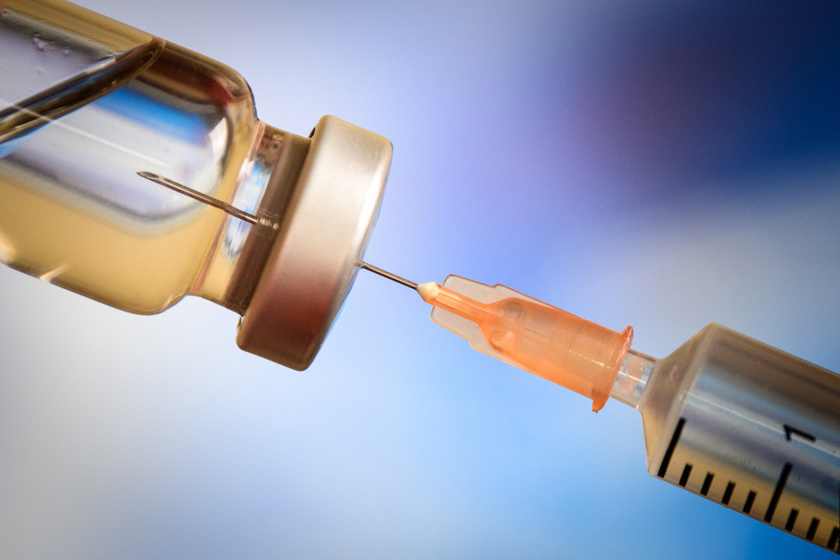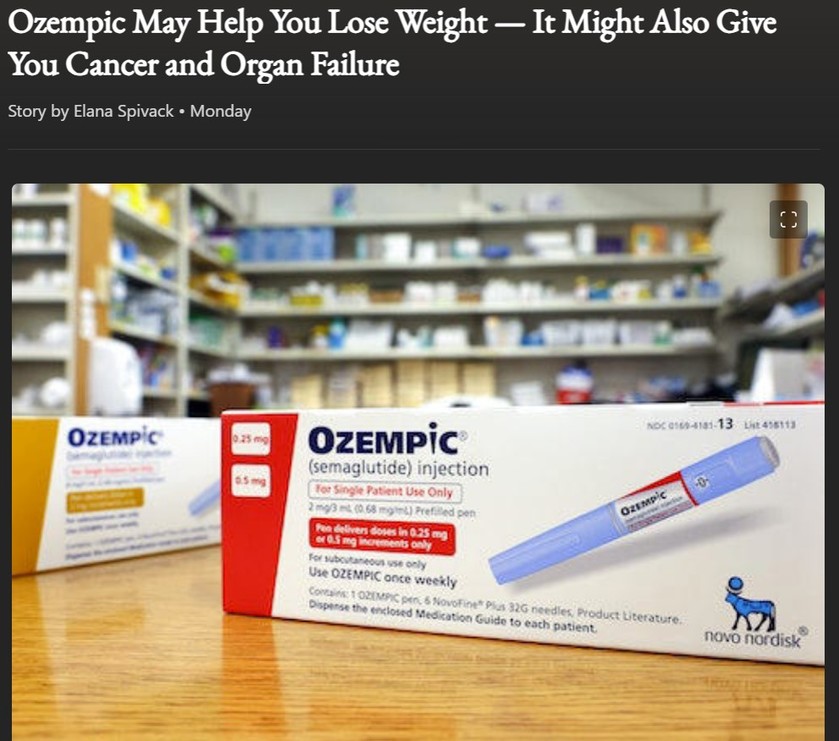Dr. Nally has had hundreds of patients ask about the Experimental COVID-19 vaccine and whether they should consider taking it or not. So here is a little education that comes directly from the package inserts, the CDC and the most recent literature available on this experimental vaccine.
Both the Pfizer/BioNTech and the Moderna Experimental COVID-19 vaccines consist of a snippet of genetic code directing production of the coronavirus' spike protein, delivered in a tiny fat bubble called a lipid nanoparticle. Some researchers suspect the immune system's response to that delivery vehicle is causing the short-term side effects.
The Centers for Disease Control and Prevention (CDC) has issued an update on those who should not receive the Experimental mRNA COVID-19 vaccines. Recommendations cover:
• Patients who have had a severe allergic reaction to a COVID-19 vaccine.
• Patients who have had an immediate non-severe allergic reaction to a COVID-19 vaccine.
• Patients who have had an allergic reaction to polyethylene glycol (PEG) or polysorbate.
• Patients who have had an allergic reaction to other types of vaccines or an injectable therapy.
• Patients who have had allergies not related to vaccines (food like shell fish, nuts, etc).
Common Side Effects that can and will occur with both versions of the vaccine (lower side effect profile in Pfizer/BioNtech version):
• Fever up to 104 F (40 C) for 24 hours in 2-4% of participants.
• Severe fatigue in 4%- 9.7% of participants
• Muscle pain in 8.9%
• Joint pain in 5.2%
• Headache in 2%-4.5%.
That's a higher rate of severe reactions than people may be accustomed to. This is a higher likelihood of reaction than is ordinarily seen with most flu vaccines, even the high-dose versions of the flu vaccine. In fact, the likelihood of a severe problem if you get a COVID-19 infection is about 0.5%. Where the likelihood of side effects from the vaccine is 1-10%.
With those odds, you be the judge.
Pregnancy/Breast Feeding:
Until the placenta anti-body question brought up on December 1, 2020, by Pfizer's former head respiratory researcher is answered, I would never let a woman of childbearing age take this medication.
The syncytiotrophoblast is the outermost layer of the placenta, the part that is pressed against the uterus. It’s a layer of cells that have fused together, forming a wall. This wall of cells keeps mom and baby working in harmony and not killing each other. There’s no other structure like this anywhere else in the body.
There is significant potential for this vaccine to cause “spike protein antibodies” to the syncytiotrophoblasts (like anit-Syncytin-1 antibodies) leading to lifelong infertility.
On December 1, 2020, the ex-Pfizer head of respiratory research Dr. Michael Yeadon and the lung specialist and former head of the public health department Dr. Wolfgang Wodarg filed an application with the European Medicine Agency responsible for European approval, for the immediate suspension of all SARS CoV-2 vaccine studies, in particular the BioNtech/Pfizer study on BNT162b. One of the biggest reasons they cited was the possibility of lifelong infertility as described below:
"Several vaccine candidates are expected to induce the formation of humoral antibodies against spike proteins of SARS-CoV-2 Syncytin-1 which is derived from human endogenous retroviruses (HERV) and is responsible for development of placenta in mammals including humans and is therefore and essential prerequisite for a successful pregnancy. This is also found in homologous form in the spike proteins of SARS viruses. There is no indication whether antibodies against spike proteins of SARS viruses would also act like anti-Syncytin-1 antibodies. However, if this were to be the case this would also prevent the formation of a placenta which would result in vaccinated women essentially becoming infertile. To our knowledge Pfizer/BioNtech has not released any samples of written materials provided to patients so it is unclear what, if any, information regarding potential fertility-specific risks caused by antibodies is included."
Because of this it could be 1-2 years before a noticeable number of cases of post-vaccination infertility could be observed.
Directly from the CDC website: "Observational data demonstrate that, while the chances for these severe health effects are low, pregnant people with COVID-19 have an increased risk of severe illness, including illness that results in ICU admission, mechanical ventilation, and death compared with non-pregnant women of reproductive age. Additionally, pregnant people with COVID-19 might be at increased risk of adverse pregnancy outcomes, such as preterm birth, compared with pregnant women without COVID-19."
"Based on how mRNA vaccines work, experts believe they are unlikely to pose a specific risk for people who are pregnant. However, the actual risks of mRNA vaccines to the pregnant person and her fetus are unknown because these vaccines have not been studied in pregnant women."
"There are no data on the safety of COVID-19 vaccines in lactating women or on the effects of mRNA vaccines on the breastfed infant or on milk production/excretion. mRNA vaccines are not thought to be a risk to the breastfeeding infant. People who are breastfeeding and are part of a group recommended to receive a COVID-19 vaccine, such as healthcare personnel, may choose to be vaccinated."
For those outside of the United States, the UK government's safety instructions recommend that "no pregnancy or breast feeding should be planned within two months of each COVID-19 vaccine dose."
Antibody-Dependent Enhancement (ADE):
A well-documented and serious side effect of vaccines is known as pathogenic priming or antibody dependent or immune enhancement. It is difficult to prove, with doctors and scientists and the public tend to initially deny its existence by saying a person has “a worse virus.” One way we learn that ADE is a real effect is by comparing vaccinated and
unvaccinated populations. If entire populations are immediately vaccinated with these experimental vaccines, the true incidence of ADE will never be known, as many cases will just be falsely described as a “new strain” or “more severe strain.”
Although most readers have never heard of it, antibody-dependent-enhancement is so well known, it even has its own Wikipedia page: https://en.wikipedia.org/wiki/Antibodydependent_enhancement. Note that coronaviruses are commonly implicated.
ADE is especially tricky because it is a delayed reaction. Initially all seems well. The person seems to have a great immune response but then becomes deadly when the person is exposed to the virus in the wild. It is well known that you must do animal testing first to try
to rule out ADE. Strong vaccine advocates Dr. Offit and Dr. Hotez, who would be expected to be enthusiastic about these experimental vaccines, have not really endorsed these new experimental vaccines, because previous coronavirus vaccines have a long history of failure due to “antibody dependent enhancement.”
Antibody Dependent Enhancement (ADE), is when anti-COVID antibodies, created by a vaccine, instead of protecting the person, cause a more severe or lethal disease when the person is later exposed to SARS-CoV-2 in the wild. The vaccine amplifies the infection rather than preventing damage. It may only be seen after months or years of use in
populations around the world. This paradoxical reaction has been seen in other vaccines and animal trials. One well-documented example is with the Dengue fever vaccine, which resulted in avoidable deaths. It happened with the RSV vaccine and with the COVID SARS-1 vaccine (which is 78% similar to COVID-19).
The Phase III trials from Pfizer, Moderna and AstraZeneca provide little insight into ADE, also called vaccine associated hypersensitivity (VAH). Not only is the sample size of vaccinated participants who developed COVID-19 very small, but, based on the information publicly available, it is unknown which strains of SARS-CoV-2 afflicted the participants in the trials.
This ADE response is so concerning that many scientists already agree the risk is much too high to release these experimental vaccines to the public at large. On December 1, 2020, Dr. Michael Yeadon and Dr. Wolfgang Wodarg ADE was included in the application with the European Medicine Agency responsible for approving drugs in the European Union, for the immediate suspension of all SARS CoV 2 vaccine studies, in particular the BioNtech/Pfizer study on BNT162b.
Another reason they cited was the formation of so-called “non-neutralizing antibodies” can lead to an exaggerated immune reaction, especially when the test person is confronted with the real, “wild” virus after vaccination. This so-called antibody-dependent amplification, ADE, has long been known from experiments with corona vaccines in cats, for example. In the course of these studies all cats that initially tolerated the vaccination well died after catching the wild virus.
Other Known Problems
COVID-19 Experimental Vaccines should be expected to have similar problems as other vaccines, including neurologic disorders and possible racial disparities in vaccine responsiveness. Known complications of vaccines include neurological diseases such as transverse myelitis, multiple sclerosis, autism, and Guillain-Barre. For example, in 1976 the government attempted a mass vaccination of the population with a newly created Swine Flu vaccine. The vaccination program was aborted after about 450 people came down with Guillain-Barre. The extremely limited experimental COVID-19 vaccine data already has revealed two transverse myelitis cases.
References:
1. https://www.cdc.gov/.../recommendations/pregnancy.html);
2. https://www.gov.uk/government/publications/regulatory-approval-of-pfizer-biontech-vaccine-for-covid-19/information-for-healthcare-professionals-on-pfizerbiontech-covid-19-vaccine)
3. https://2020news.de/en/dr-wodarg-and-dr-yeadon-request-a-stop-of-all-corona-vaccination-studiesand-call-for-co-signing-the-petition/?fbclid=IwAR3yoj0SCIK8WaaS0-w1vIoig4qNYydTxT3aK01NJDwHut3jWpygtnnbNY)
4. https://2020news.de/wpcontent/uploads/2020/12/Wodarg_Yeadon_EMA_Petition_Pfizer_Trial_FINAL_01DEC2020_EN_unsi gned_with_Exhibits.pdf)
5. https://www.ncbi.nlm.nih.gov/pmc/articles/PMC7642463/
6. https://www.nature.com/scitable/topicpage/host-response-to-the-dengue-virus-22402106/
7. https://www.ncbi.nlm.nih.gov/pmc/articles/PMC7642463/
8. 8 https://www.nature.com/articles/d41586-020-02706-6
















